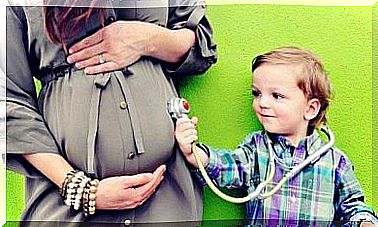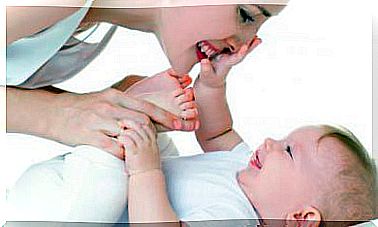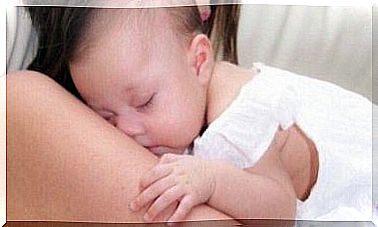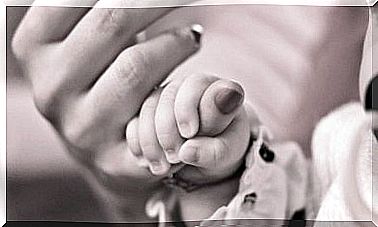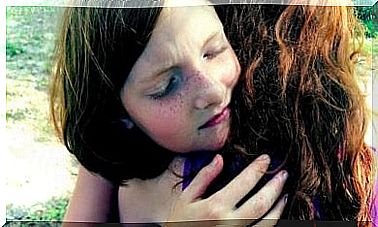Myths You Should Know About Breastfeeding
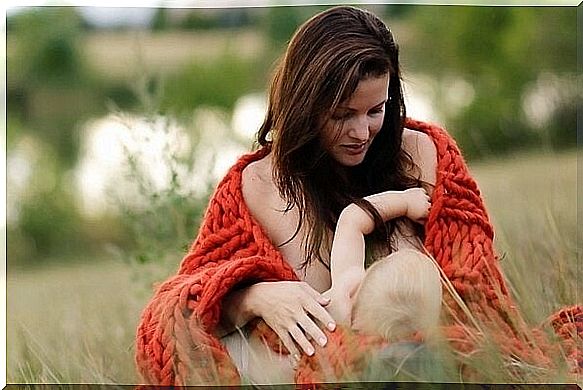
Have you ever heard these phrases? If so, rest assured. There are many false myths about breastfeeding. Keep reading and you will discover some of them.
While it is true that the importance of breast-feeding children continues to be emphasized today until the mother considers it or so wishes, many women fail to do so due to incorrect advice or false myths.
Other women, for example, think that feeding times should be respected as much as possible and that it is not advisable to breastfeed before the right time. Unfortunately, this is not the right attitude. Always remember that in case of any doubt, the best specialist is the pediatrician. It doesn’t matter what other moms driven by the latest fashions tell you.
The best thing is to understand your baby’s needs, know your body and always have the support of a good professional. We’ll give you some more information in this article.
False myths about breastfeeding
When we are moms and live in this wonderful breastfeeding season, we always have around us family members, friends, grandparents, aunts, cousins and neighbors who can help by giving us their wise advice.
This is all positive. However, never get carried away by everything that you are told. Think that the main priority is your own child. On certain occasions, an inappropriate phrase can cause us to worry without reason or that we end up with wrong behavior.
Here are some false myths that every mother has had to face:

If your breasts don’t enlarge during pregnancy it’s because you won’t have milk
Many women do not have an increase in breast size during pregnancy, it happens. However, that doesn’t mean you won’t have milk. The part of the breast that produces milk is the glandular area. Most likely, in these cases, you will notice the increase in size during the first few months after giving birth. It’s completely normal.
When you breastfeed, you have to drink more milk
I’m sure you’ve been told that, during breastfeeding, it’s necessary to drink more milk. That way we would have more milk to give our child. Well, that’s another myth. The important thing is that your diet is varied and balanced. It is not about consuming dairy products exclusively. But, yes, to have a balanced diet that includes fruits, vegetables and proteins.
Babies have to eat every three hours. Never feed them before!
What is the meaning of this statement? If a baby is hungry, do we have to wait three hours to feed? Don’t listen to this statement. Simply remember that a baby needs to be fed between 8 and 12 times a day. Ideally, drink small amounts of milk several times a day. Always according to what the baby asks for.
As your child grows up, your demand will not be as high. However, during the first few months it is enough for us to understand our child’s needs.
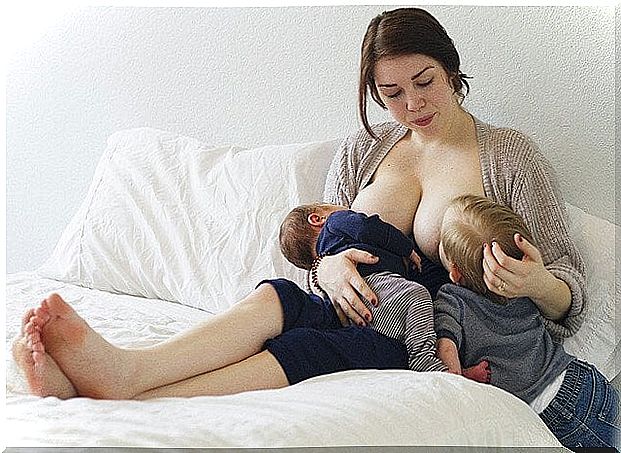
The feeds last 10 minutes on each breast and the baby has to feed on both breasts at each feed
This false myth has also been passed down from generation to generation. The worst part of all this is that when a mother becomes obsessed with this idea, the baby ends up refusing to breastfeed. This is certainly not suitable.
We need to understand the following:
- When a baby starts to suck, the first thing he will notice is watery milk.
- Seconds later, this milk will already be high in fat.
- Ideally, with each feeding, the child concentrates on one breast so that he or she drinks both: water rich in milk and milk rich in fat.
The 10 minutes of time is not a must either. Because each child has their own needs.
During breastfeeding, the woman does not get pregnant
This is another very common myth that many mothers already know is completely untrue. While it’s true that after giving birth it can take a few months without ovulation, this doesn’t always happen.
When children start to walk, they should stop breastfeeding
This is certainly one of the most negative and backward myths we can find. A baby must receive breast milk for the first 6 months. Up to two years of age, breast milk – or bottle – should be supplemented, little by little, with other foods.
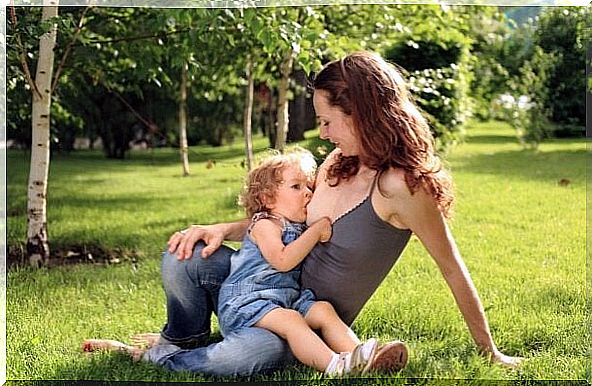
- Whether or not to extend breastfeeding beyond two years is something that only the mother must decide. No one else should decide for her. And deciding to terminate will not create any trauma in the child. She will no longer be dependent, nor will she be obese, nor a child with low self-esteem.
This creature will, in the future, be whatever it wants to be. And with the correct diet, most likely, you will be more immune, healthier, have fewer allergies, etc.
The issue of stopping breastfeeding a child is something for the mother alone. So let’s end the false myths about breastfeeding for everyone’s sake.

